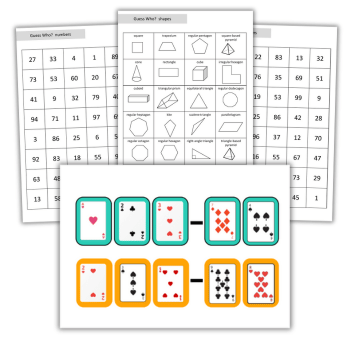Maths mastery – Does it hold some pupils back?

I get the mastery approach but sometimes I feel it’s preventing some students in primary schools from getting ahead, says this anonymous educator…

Teaching maths seems to have become quite complicated recently.
There seems to be a lot of new initiatives and maths schemes that schools have adopted to ensure they keep up with the latest maths philosophies. I think some maths mastery approaches are very positive and feel quite ashamed of how I used to teach maths.
Of course, I was none the wiser – I taught maths how the school wanted. I planned my week but had pre-determined set groups in class. Mine were red, yellow, green and blue. The children knew what they meant – they’re not stupid. Pupils stayed in that group most of the year and that was that.
However, in recent years I realised children could be moved around on a daily basis depending on how they were doing. In fact, I started pre-assessing children to help me determine how to group the class (at least for the first day of the week).
Maths teaching for mastery
Sometimes the more able would work with me and sometimes with the TA, but it was always different and I had autonomy to manage my groups as I pleased. But, in some schools, this has changed.
Some schools insist that classes must now sit in mixed-ability pairs for maths. You’re told not to ability group pupils at all. I understand this may be appropriate for the first day. However, after day one, it’s normally clear who the fast learners are, who will need stretching and who will need supporting the next day.
Surely it makes sense to group them together for the next lesson – purely from a class management point of view?
Approach to teaching an understanding of maths
I’ve had personal experience of this recently. I asked my school if I could have the flexibility to move children around, based on their daily learning. The answer was a resounding no. “We don’t set here. We do maths mastery.”
Again, I agree with the principles of maths mastery – deepen pupils’ understanding, don’t jump ahead too far – but my question was answered with, “You must stretch children’s learning with individual questions. Ask them to explain. Ask them to reason. Ask them ‘Why?’ They can still sit in mixed-ability pairs.”
I don’t want set groups. That holds children back, I get that. But watching my TA moving from one child to another, giving the same input to each of them, seems like a waste of time. Surely it would be better to have the children who struggled on day one (or even during the lesson) sat together.
Trending
These groups would change on a daily basis – they’re not set. It just seems like good teaching to me.
Deep understanding of mathematical concepts
I was told off recently because I’d noticed that seven pupils in my class had understood the properties of angles really quickly. They weren’t all my ‘top’ pupils. I called them to the carpet and extended their learning with some challenges.
They were bouncing ideas off each other and challenging each other. They loved it; I loved it. I left them to it for a bit and checked in on some other children. Apparently, I was told, this is not maths mastery. The children must stay in mixed-ability pairs. Every child must do the same.
The more able (or ‘rapid graspers’, as we’re told to call them) could further their understanding by helping the child next to them who isn’t as quick. “They can explain their thinking to them. This will be great for the rapid graspers – to help them consolidate their learning.”
Making a positive impact in maths education
I also have to teach the whole class the same thing for 25 minutes. It has to be super pacey. I have to challenge individuals with differentiated questions and make sure they all do the task practically first. In addition, I have to ‘ping pong’ sentences with the class, where they repeat what I say.
I’m told to watch countless maths mastery lessons online and everyone has been given numerous articles to read and websites to register with where we can gain access to maths mastery resources. It’s all become very complicated.
I now have a long list of things that I now have to ensure I do in my maths lessons. I get maths mastery but sometimes I feel it is holding back some pupils – and teachers.
The writer has taught in five schools across a 20 year career. Follow them on Twitter at @fakeheadteacher and visit their website at headteacher-newsletter.com.











